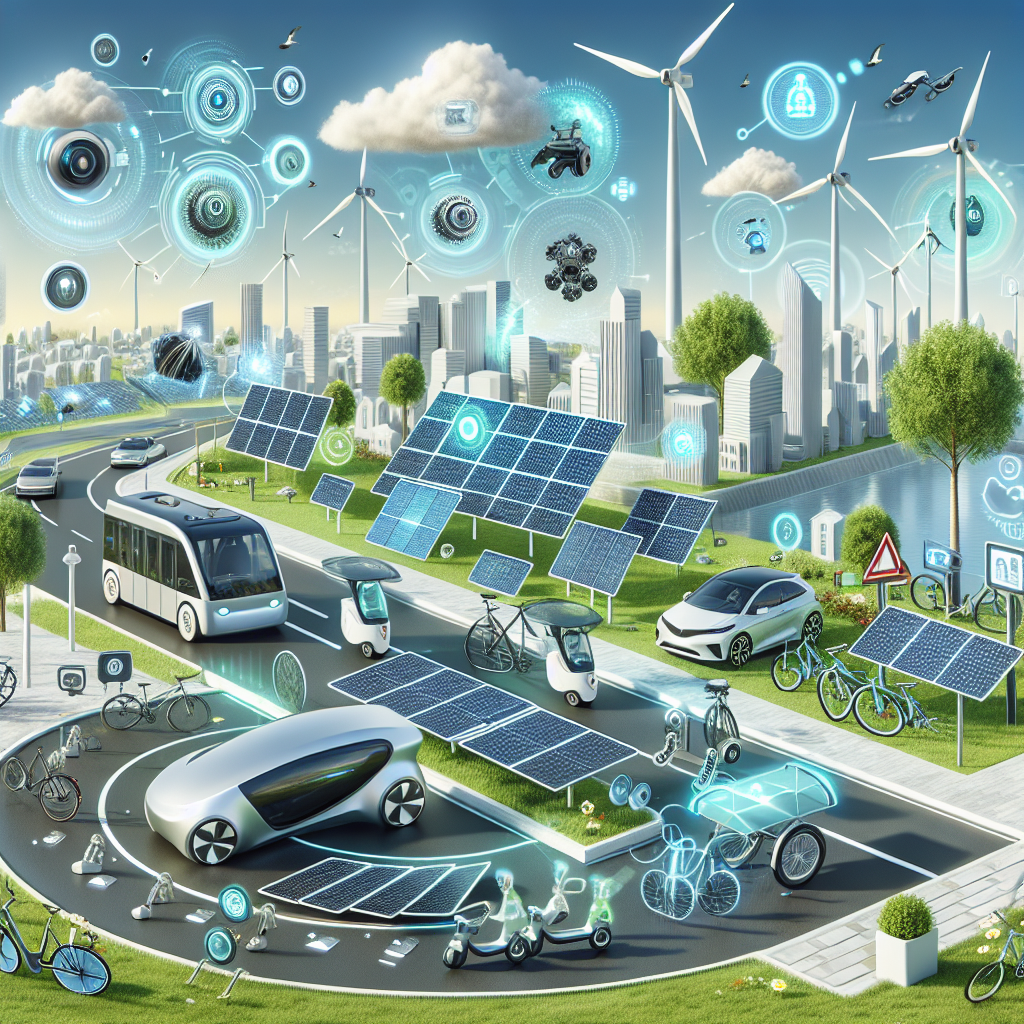The future of sustainable transportation is rapidly evolving, with technological advancements playing a key role in shaping the way we move people and goods. One of the most promising developments in this space is the integration of artificial intelligence (AI) in transportation systems. AI-powered innovations have the potential to revolutionize the way we think about mobility, making transportation more efficient, safer, and environmentally friendly.
AI in transportation is already being used in various ways, from optimizing traffic flow and reducing congestion to improving the safety of autonomous vehicles. As the technology continues to advance, we can expect even more innovative solutions to emerge, transforming the way we travel and reducing our impact on the environment.
One of the key benefits of AI-powered transportation systems is their ability to optimize routes and schedules in real-time, based on changing conditions such as traffic congestion, weather, and demand. This can help reduce travel times, fuel consumption, and emissions, making transportation more efficient and sustainable. AI can also be used to predict and prevent accidents, improve the safety of vehicles, and enhance the overall passenger experience.
Autonomous vehicles are another area where AI is making a significant impact on sustainable transportation. These vehicles have the potential to reduce traffic congestion, improve road safety, and lower emissions by optimizing driving patterns and reducing the need for parking spaces. AI-powered autonomous vehicles can also provide mobility solutions for people who are unable to drive, such as the elderly or disabled, improving access to transportation for all.
In addition to improving efficiency and safety, AI can also help reduce the environmental impact of transportation by optimizing energy use and promoting the use of electric and alternative fuel vehicles. By analyzing data on traffic patterns, weather conditions, and vehicle performance, AI can help identify opportunities for reducing fuel consumption and emissions, leading to a more sustainable transportation system.
Overall, AI-powered innovations in transportation have the potential to revolutionize the way we move people and goods, making transportation more efficient, safe, and environmentally friendly. As the technology continues to advance, we can expect to see even more transformative solutions emerge, shaping the future of sustainable transportation.
FAQs:
Q: What are some examples of AI-powered innovations in sustainable transportation?
A: One example of an AI-powered innovation in sustainable transportation is the use of predictive analytics to optimize traffic flow and reduce congestion. Another example is the development of autonomous vehicles that use AI to navigate roads safely and efficiently.
Q: How can AI help reduce the environmental impact of transportation?
A: AI can help reduce the environmental impact of transportation by optimizing energy use, promoting the use of electric and alternative fuel vehicles, and reducing emissions through more efficient driving patterns.
Q: Are there any challenges to implementing AI-powered innovations in transportation?
A: Some challenges to implementing AI-powered innovations in transportation include concerns about data privacy and security, regulatory hurdles, and the need for infrastructure upgrades to support new technologies. However, with ongoing advancements in AI and collaboration between industry stakeholders, these challenges can be overcome.
Q: What are some potential benefits of AI-powered transportation systems?
A: Some potential benefits of AI-powered transportation systems include reduced travel times, lower fuel consumption and emissions, improved road safety, and increased accessibility for all passengers. These systems have the potential to transform the way we think about mobility and create a more sustainable transportation system for the future.

